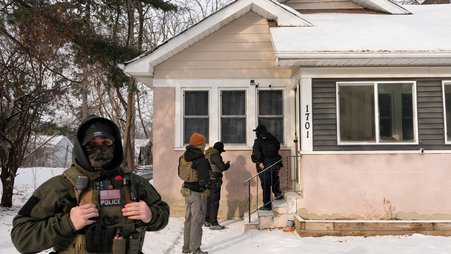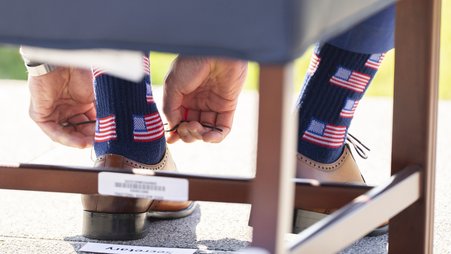We exposed as a lie the Trump administration’s basis for repealing restrictions on surveilling journalists to investigate leaks. The “fake news” that the administration claimed to be combating — reports that the intelligence community disputed its claim that the Venezuelan government directed the activities of the Tren de Aragua gang in the United States – was, in fact, 100 percent accurate.
But just in case that bombshell and the widespread news coverage that followed doesn’t shame the administration into changing course, Freedom of the Press Foundation (FPF) hosted a discussion about past efforts by the government to out reporters’ sources and what journalists should expect when federal prosecutors come after their newsgathering.
Our panelists would know better than most. Former New York Times reporter and Pulitzer Prize-winner James Risen fought a seven-year battle against attempts by both the George W. Bush and Barack Obama administrations to force him to testify and reveal his sources in a leak investigation. He detailed the Obama administration’s endless litigation against him, while at the same time it engaged in secret digital surveillance of his communications.
Ryan Lizza, the founder and editor of Telos.news and a former reporter at Politico, CNN, and The New Yorker, also joined to discuss his reporting on the Obama administration’s overreach in secretly spying on Fox News reporter James Rosen, as well as efforts by former U.S. representative and current Trump sycophant Devin Nunes to obtain Lizza’s communications from tech companies in separate litigation.
And Lauren Harper, Daniel Ellsberg chair on government secrecy at FPF, discussed the aforementioned revelations about the Trump administration’s false pretexts for cracking down on leaks, which she obtained through the Freedom of Information Act.
Risen started by laying out the stakes that emerged after 9/11. “Basically everything about the American conduct in the war on terror was classified,” he explained. “Everything that we now take for granted about our body of knowledge about how the United States conducts warfare in the 21st century came through leaks or unauthorized disclosures of one form or another.”
Lizza agreed, adding that critics of the Iraq War in the current administration would not have been able to mount their criticisms without leaks. Politicians, he explained, use leaked information to form the basis for their political platforms and then turn against leakers when they’re the ones in power.
Harper disputed the administration’s apparent belief that the solution to leaks is more secrecy, not less. “Upwards of 90% of information that is classified ought not to be. So I think in some ways, we can look at leaks as a response to a broken classification system,” she said.
Risen observed that the Obama administration finally backed down from forcing him to testify not due to the law but due to bad press. Lizza had similar impressions from his coverage of the Rosen case, explaining that his reporting “got the ear of some people in the Obama administration who did not like being accused of attacking the First Amendment and going after reporters.”
As Risen explained, when the government comes after journalists it’s often not about finding out who they’re talking to, it’s about “having a chilling effect on journalism in general and making sure everybody is afraid of the government.” Added Risen, “They’ll go after journalists not because they need them, but because they want to punish them and set an example.”
It remains to be seen whether the Trump administration will respond to public shaming like Obama did, but we won’t know unless we try. First, the press needs to avoid surveillance, by implementing digital security best practices when storing data and communicating electronically with sources, but also, as Risen said, going “off the grid” and communicating face-to-face whenever possible.
When that fails and the government comes after journalists’ sources anyway, it’s imperative that the press stand up for itself and its sources, by raising alarms about the risks to investigative reporting and press freedom when the government is able to snoop into reporters’ notebooks and emails. Caving to the pressure only encourages more retaliation.





